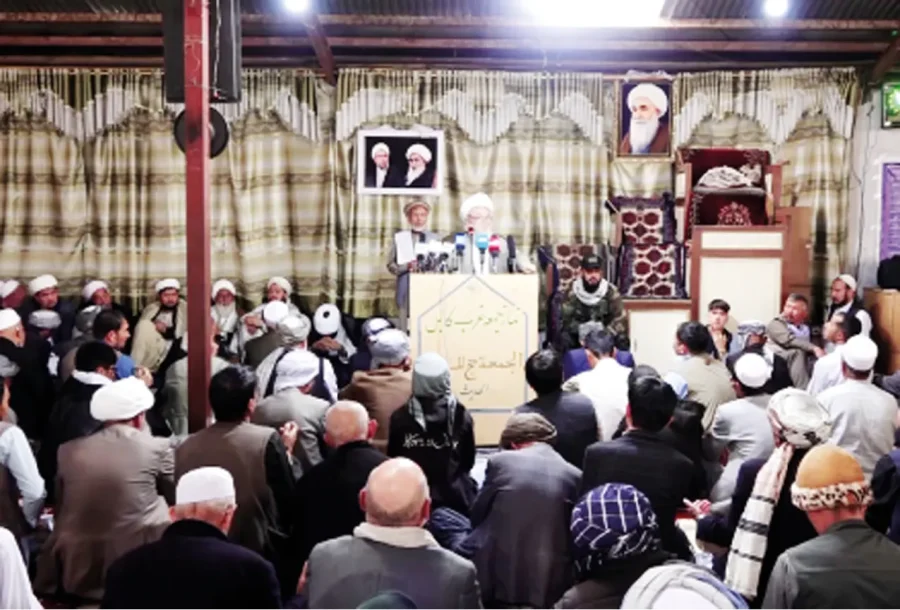Some Shiite scholars in Kabul described the People’s Democratic Party coup of Saur 7, 1357 (solar calendar) as a day of instability in Afghanistan.
Those who gathered in Kabul to mark Saur 7, 1357 (solar calendar) — exactly 46 years ago on Friday — said that the coup led to years of war, insecurity, poverty, and underdevelopment in the country.
The scholars added that the citizens of the country have always been committed and have never yielded to the schemes of enemies.
Abdul Qadir Alami, a religious scholar, said: “All the problems, wars, destruction, displacement, and chaos that have occurred in this country in the past half-century stem from that infamous communist coup of Saur 7, 1357 (solar calendar) in this honorable land of Afghanistan.”
They once again declared their support for the Islamic Emirate and called for attention to the rights of all citizens equally in the country.
Amir Rahimi, a member of the Shiite Council of Afghanistan, said: “If you have criticisms and are seeking your legitimate rights, the Islamic government has its leadership, go gather and make your voice heard.”
These scholars also emphasized that the enemies of the Afghan people have always tried to divide the various ethnic groups in the country through different means; however, they have not been successful.
The coup on Saur 7, 1357 (solar calendar), led to the rise of the People’s Democratic Party of Afghanistan and the fall of the country’s first republic regime.
This event, which happened 46 years ago Friday, had a significant impact on the lives of the Afghan people and, according to politicians, no stable regime has been established in Afghanistan in the more than four decades since.
Salim Paigir, a political analyst, stated: “After the coup by Sardar Mohammad Daoud Khan, no stable regime has been formed in Afghanistan because, firstly, no groundwork was laid for it, and secondly, foreign ideologies were employed.”
The governance under the communist regime was not without its troubles, and after their rise to power in Afghanistan, disagreements emerged among the leaders of this party.
Khalil Ahmad Nadem, a military affairs analyst, said: “Hafizullah Amin was prominent in these disputes and eventually led to the removal of Taraki from power, exiling several including Babrak Karmal and Dr. Najibullah, and others were imprisoned on various pretexts like General Shahpour and Ali Akbar, with many more being killed.”
The overthrow of this regime was not easy, and during the ten years of war, millions were displaced from the country, and hundreds of thousands more were killed; but what should be done to prevent such events from repeating in the country?
Moeen Gul Samkani, a political analyst, said: “We must always consider the era of the People’s Democratic Party of Afghanistan as a lesson for today and the future. A one-party, single-ideology government has no chance of success in Afghanistan and cannot ease the lives of its people.”—Tolonews










